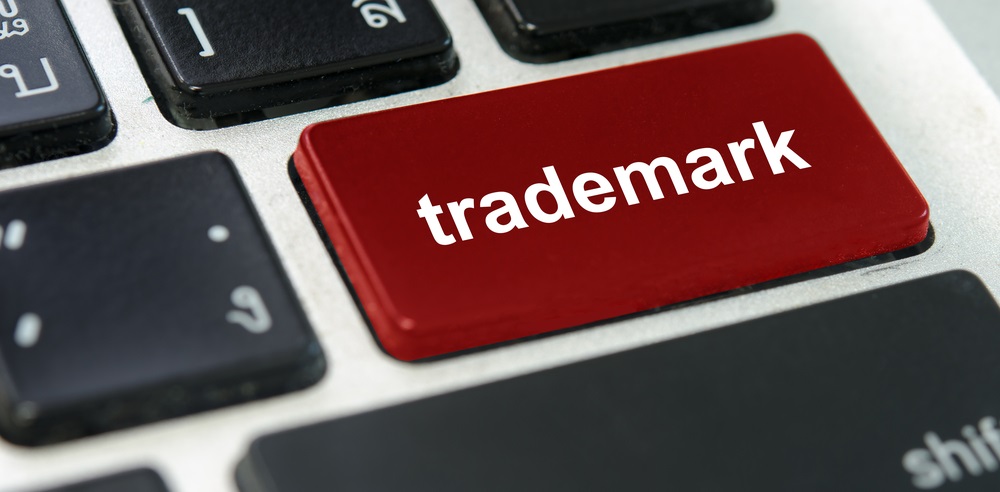Last Updated on December 17, 2025 by Joy Kyalo

Trade Name Vs Company Name: Some companies in the United Kingdom register their business name with Companies House and operate under one or more trade names. The official business name is the one that business owners register with Companies House also referred to as the ‘Legal Name’; all that said, one may not necessarily use it as a trade name.
Is it legal to have several names for your business? In the following article, we are going to focus on trade names vs company names, their definition and differences, and the advantages of each.
What is company name?

Company name refers to the official name under which the company is registered. It is the legal identity of the business and is used in all formal and legal documents.
It is the name that appears on all official documents, such as contracts, invoices, and tax returns.
In the UK, a company name must be registered with Companies House. This guarantees that the name is distinctive and does not belong to another incorporated organisation.
The name should also adhere to certain rules and regulations such as being inoffensive, not suggesting affiliations with government or local authorities without permission, and not similar to an already existing name.
Although the company name is the official legal identity of the company, companies frequently adopt a trade name that is often different from the firm’s registered name for marketing considerations.
What are the rules and regulations for choosing a company name?
In the UK, the process of selecting a company name is subject to several legal provisions and distinct policies, to safeguard the originality, suitability, and other requirements of the name. The following are the main principles:
Distinctiveness: The name of your company should be distinguishable and should not be identical or nearly identical to the name of any other business entity currently in existence. This also applies to names that only differ by punctuation, special characters, or words that look or mean the same.
Sensitive words: Certain words and expressions are considered sensitive and require permission to use. These include;
- Terms indicating business superiority, a particular status, or roles (for example, ‘British,’ ‘Institute,’ or ‘Tribunal’).
- Suggesting an association with the government of the UK, decentralised administrations, or designated public authorities.
- Incorporating terms representing supervised activities.
- Involving terms that could constitute an offence.
Offensive words: The name of your company should not include any offensive language or inappropriate content.
Legal endings: Private limited companies must have a name ending with “Limited” or “Ltd”. If the company is registered in Wales, the Welsh equivalents “Cyfyngedig” or “Cyf” can be used.
A company can be exempted from using ‘limited‘ or ‘Ltd’ in its name under the following conditions:
The company must be limited by guarantee with Articles of Association that specify that the company:
- Is a registered charity.
- Is not permitted to distribute dividends to its shareholders.
- Engages in promoting or regulating commerce, education, science, art, and religion.
- Mandates shareholders to contribute to company assets within a year of ceasing to be a shareholder.
- Is obligated to use its income to further its objectives.
To remove the term “limited” from the registered name of the company all the directors must pass a resolution and file it with the Companies House with the application in Form NE01.
What is a trade name?

A trade name or trade name, also known as “doing business as” a (DBA) name, is a title that a company or a business adopts for a day-to-day operation that may be different from the officially registered name of the business. For example, if your business’s legal incorporation is under the name “Savvy Consultant Ltd.,” you may decide to run the company under the different trade name “Savvy Services.” The trade name is not required to contain extra-legal terms such as LLC and Ltd. However, you can still use the same business and trade name. Customers and clients can easily recognise it and engage with it, and it is generally featured on signs, online platforms, and promotional materials. Though it serves to project the image of the business to the outside world, it does not form a legally independent structure.
How to choose a trade name?
Choosing a trade name in the UK involves several important considerations to ensure it aligns with legal requirements and effectively represents your business.
Make sure your trade name is not already being used by another business. You can confirm this by checking the Companies House name availability checker and the trademark database of the UK IP Office. Choose a straightforward name that is easy to read, pronounce, and remember. This will enhance brand awareness and make it easier for consumers to search for you online.
Ensure that your trade name does not contain terms such as “limited,” “Ltd,” “LLP,” “plc,” or any sensitive words unless you have obtained the necessary permissions.
Refrain from using a name that implies an association with government or local authorities unless you have obtained explicit permission.
In case you want to protect your business name, it would be advisable to consider trademark registration which will provide you with exclusive rights to the name of your goods and services. Make sure that the name represents the nature and values of your business. It should give potential customers an idea of what your business does.
Trade name vs company name: Pros and cons
Company name
Pros:
Legal protection: After registration, no other firm will be able to use the same name thus providing rights of exclusivity and legal protection.
Credibility: Enhances your business’s credibility and professionalism, which can be beneficial for attracting investors and customers.
Compliance: Ensures compliance with legal requirements, making it easier to open bank accounts, enter into contracts, and conduct official business.
Cons:
Rigidity: Changing a registered company name can be a complex and time-consuming process.
Limited branding flexibility: The company name must comply with legal requirements, which might limit creative branding options.
Public record: The company name and details are publicly accessible, which might not be ideal for businesses seeking privacy.
Trade name
Pros:
Flexibility: Allows you to create a brand identity that resonates with your target market without changing your official company name.
Marketable: It is convenient to develop catchy and salable names that can draw in potential clients.
Branding: Allows you to run several different brands or business lines within a single incorporated entity, each of which owns its distinct trade name.
Cons:
No legal safeguards: Trade names do not have the same level of protection that could be found in the registered name. Others may also use similar or the same trade names.
Potential for confusion: The use of the trade name of the business may lead to confusion among the customers and other stakeholders within the business.
Conclusion:
In conclusion, a business name should be registered by Companies House when incorporating your UK limited company. There is no legal obligation to register your trade name, however, if you want it registered, you can do so with Companies House. It is important to note that registering your company or trade name does not give trademark protection.
Need to change your company name? BusinAssist offers company name change services. Our service for changing company names handles everything, starting with drafting the resolution and ending with filing it with Companies House, as well as completing all the required paperwork for Companies House to update the company’s name on the Companies House register. The price we quote includes the fees charged by Companies House.
For more information, contact us at info@businassist.com.
FAQs
Q: How do I add a trade name to my company?
Ans: To add a trade name to your company will involve a few simple steps. Before registering the trade name with Companies House, check the name availability. Ensure the trade name you want to use is not already used by another business. This can be accomplished online. It is important to note that registration of a trade name with Companies House does not provide trademark protection.
Q: Do I need to register a trade name in the UK?
Ans: In the UK, you are not legally required to register a trade name with Companies House. However, if you use a trade name, you must include your company’s registered name on all official documents and correspondence, such as invoices and letters.
Q: Is the trade name and brand name the same?
Ans: Trade and brand names are related but have distinct concepts. A trade name refers to the title under which a company carries on its business activities. It may either coincide with or deviate from the company’s registered name, while a brand name is limited to a particular goods or services provided by the company. Typically, it serves the purpose of marketing and promoting a product in the market for building its image in the customer base.
Q: Can a company have more than one trade name?
Ans: Yes, a company can have more than one trade name. This is quite common for businesses that offer different products or services under distinct names.
Q: Can I change my company name?
Ans: Yes, you can change your company name. To change your company name, directors must pass a resolution to change the company name. This will require a majority vote. In most instances, you shall seek the shareholders’ approval. One can do this through a special resolution, which is passed by not less than 75% of the votes cast in favour. When both the directors and the shareholders have approved the name change, you have to send the form NM01 (Notice of Change of Name by Resolution) to Companies House.
This can be done either online or through the postal services. This service will attract a fee. Once the name change has been granted, proceed to make all necessary alterations to the company records including letterheads, signs, and websites.
Q: Should I trademark my company name in the UK?
Ans: Yes, you should trademark your company name in the UK. Trademarking your company name offers several benefits such as legal protection, brand recognition, licensing opportunities, and asset values. To register a trademark in the UK, you’ll need to apply through the UK Intellectual Property Office (IPO).
Q: Can a sole trader have a company name?
Ans: Yes, a sole trader can have a company name. As a self-employed person, one has the freedom to either use his or her birth name or an entirely different commercial name which in most cases is referred to as a trade name.
Read Also:
- How to Change Your SIC Code on Companies House: A Step-by-Step Guide for UK Businesses
- Should I Trademark My Business Name UK? What You Need to Know
- How to Fill Out a Stock Transfer Form J30: A Step-by-Step Guide
- What is the Difference Between a Partnership (LLP) and Limited Company (LTD)?
- Can i Change my Limited Company Name: The Ultimate Guide
- What Are the Disadvantages of a Dormant Company?
- Everything You Need to Know About Companies House Default Address
- Start a UK Company: A Simple Guide from Idea to Setup (2025 Edition)

The BusinAssist Editorial Team has 15+ years of experience writing about small business and company formation in the UK, Canada, and the USA. We simplify complex processes and provide practical insights to help entrepreneurs succeed. Business Assist with BusinAssist – your partner for business success.

